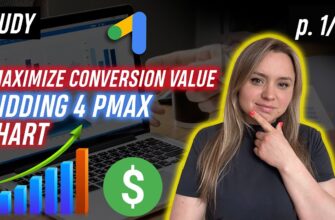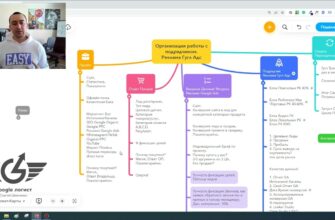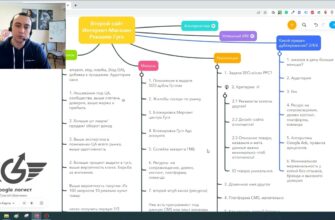Continuously checking and adjusting bids in contextual campaigns is almost impossible unless monitoring ad up and down movement and bid changes is done automatically.
Bidders for contextual advertising or otherwise, bid managers are the best at this task. These special services change bids according to pre-fixed parameters (maximum possible cost per click, rejection percentage, refresh rate, ad target position, etc.).
In the article, we will take a closer look at what bidders are, dwell on their pros and cons, and explain the methodology of such platforms.
How many calls and sales will I get by ordering contextual advertising from you?
I need to calculate the conversion of my website Describe
the task
in the application
Calculate potential ad revenue Google
contextual advertising calculator
What are bidders in contextual advertising?
Bidders in contextual advertising perform a very popular function – they fix ads in the required positions. This tool works without human intervention and time delays.

If you have ever set up a contextual campaign, you most likely know that ads lose positions sooner or later and are forced out of special placement and guaranteed impressions.
Controlling bid fluctuations in an auction 24/7 is not easy. Continuous monitoring and editing of rates to the optimal level are necessary. Bidder is indispensable for such tasks. It automatically monitors the development of the situation at the auction and adjusts the cost per click.
Bidders show the highest returns in campaigns:
- with narrow semantics;
- with highly competitive key phrases;
- without access to systems for collecting statistics and analytics (traffic arbitration);
- based on a data feed (online stores).
Important! Don’t confuse bidders with optimizers – you may miss out on a large pool of opportunities. Both tools are required to manage PPC, but they work in different ways.
The optimizer is used to increase the performance of ads. The system controls the flow of orders and traffic. The decision on what request and what position the ad should be in is made based on the work of the software algorithm.
How many calls and sales will I get by ordering contextual advertising from you?
I need to calculate the conversion of my website Describe
the task
in the application
Calculate potential ad revenue Google
contextual advertising calculator
For this reason, even those who do not know all the nuances of setting up contextual campaigns can work with the tool. The bidder should be managed by an experienced PPC specialist.
What tasks can bid bidders in Google Ads solve?
Bidders in Google Ads are convenient to use if required:
- Get the maximum number of clicks;
- Collect clicks with the lowest cost;
- Work with large amounts of information;
- Stay at a given position in the search results;
- Optimize the execution of many template algorithms.
A bid manager simplifies both the process of managing AdWords campaigns and setting up ads.
How do bid managers work?
The Bid Manager periodically queries the API for statistical information about the effective Google Ads CPC. How often the system should send such requests (for example, once every 10 minutes or half an hour) is set in the settings in advance.
After analyzing the information received, the system determines whether to lower or increase the cost per click for any search phrase, and also decides whether to stop impressions. For example, if 200 hryvnias have already been spent on a certain request over the past day, and the conversion is zero, the bidder can block impressions.
The most popular strategies that form the basis of the work of the bid manager are based on the desire to maintain a position in a special placement or guaranteed impressions block without overpayment or at a single cost for a specific range.
Attention! The main task of bid managers in contextual advertising is to maintain the given ad positions, and therefore they almost always increase bids. There are systems that reduce the cost of a click when the opportunity arises, but this feature is relatively rare.
Bid manager for contextual advertising
- Continuous cost monitoring. The price per click in contextual advertising is determined by the auction, which is the reason for the endless changes in rates. The situation cannot be controlled manually. Bidder checks and updates rates up to 12 times per hour;
- Saving time. Regular manual tuning requires the specialist to perform monotonous, repetitive actions for several hours. And the bid manager can be launched quickly and effortlessly to accompany further work;
- Effective spending of the advertising budget. Bid manager algorithms calculate the optimal cost per click automatically and then adjust the necessary parameters in real time. With this approach, inefficient spending of the budget is excluded;
- Retaining a given position in the search results. Bidders hold ad positions without outside interference, maintaining high click-through rates. All the parameters necessary for this must first be specified in the settings;
- High CTR. The program affects the increase in CTR and ensures its high level. This has a positive effect on ad positions and the number of clicks.
Do bidders have disadvantages?
- Additional knowledge. Working with rate managers requires special knowledge and skills. You can get them by signing up for training or going on your own and stuffing your own bumps (this method threatens to inefficiently spend your advertising budget).
- Potential cost per click increase. The change of the rate occurs in accordance with the current state of affairs at the auction. The cost can skyrocket, causing a cost overrun.
- Pay per use. Almost all popular platforms work on a paid basis. Free analogues lose to them in terms of functionality and stability.
Popular bidders in contextual advertising
At present, there are many systems, often for money, and sometimes for free, to automate the process of managing advertising campaigns. Some of them are easy to master even for beginners taking their first steps in the field of contextual advertising. There are also programs designed for professionals with extensive experience.

Among the most popular bidders in contextual advertising:
- eLama. The program works both in contextual campaigns in search engines and in social networks. Two modes are available: free with a limited number of features and paid advanced. The bidder can be integrated with Yandex and Google Analytics systems and makes it possible not only to quickly adjust bids, but also automatically optimize ads.
- Aori. Designed for small and medium-sized organizations. A specialist working with this system does not need to have extensive experience in Internet marketing. Bidder independently creates advertiser accounts in search engines and social networks.
- Origami. For the operation of this system, complex algorithms are used, which is its main difference from competitors. An integrated approach to optimization allows you to maximize the profitability of campaigns and reduce advertising costs. Implemented the ability to integrate with call tracking services and CRM systems. Bidder settings can be difficult for beginners, while the widest functionality is open for professionals.


















